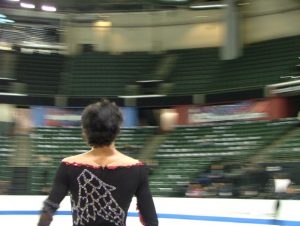 Did you know that almost everyone, even elite athletes, get “butterflies” before a competition? “Butterflies” signal the presence of strong emotional and physical energy that you can use to enhance your focus in and skill execution in performance or practice if you know how to use it.
Did you know that almost everyone, even elite athletes, get “butterflies” before a competition? “Butterflies” signal the presence of strong emotional and physical energy that you can use to enhance your focus in and skill execution in performance or practice if you know how to use it.
You might experience it as nerves, the “funny feeling in the pit of my stomach” or “feeling the need to throw up.”
What you might not know is that those same “butterflies” can also feel like being “excited” or the “I can’t wait for (some event) to come.”
The physical feeling is the same. The only difference is in how you choose to label it.
If you are looking forward to something, you can call it being “Excited” or “Eager.”
If you are not looking forward to something, you can call it being “Worried” or “Nervous.”
What to call that feeling is your choice! Skaters understand that great performances are enhanced by positive emotions (i.e. excited, eager) which keep the body loose and quick and the mind focused and uncluttered. On the other hand feeling worried, anxious or nervous causes the body to tighten up and distracts the mind so that response time and movement execution is slow and sluggish. Skills like jumps and elements are effortful and do not flow.
The feeling of “butterflies” are our human response to coping with threat, you might know it better as the fight or flight response. While we are not running away from lions in the jungle anymore, and buildings don’t often burn down around us, this response is still alive and well, and there for us when we need it.
By understanding why you feel this way, you can choose the way
you use this surge of energy.
The next time you have have the opportunity to feel those butterflies, practice this response:
1) Tell yourself this is a normal reaction, and you choose to take control.
2) Take 5 to 10 deep slow belly breaths (count them).
3) See those butterflies “fly in formation”
4) Decide what you want to use this powerful energy to do.
5) Focus on it and do it.
Just like your skating skills, if you practice your mental game, you will get better.
Tip: You don’t have to wait for a competition to practice this. The next time you take a test at school or make a speech or meet with your boss, try it out and see what works for you.
Mental skills training can help to keep your emotions on an even keel so that you can practice and compete your best.
Start here; download “Confidence Myth Busters,” a complimentary eBook and make a change.
